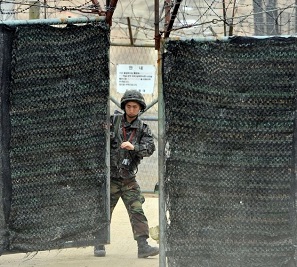The reasons for the crisis on the Korean Peninsula
Alexander Vorontsov
A peaceful co-existence with the Democratic People's Republic of Korea does not figure in America's plans. Rather, they are looking to eliminate the state.
Tensions are rising on the Korean Peninsula. Pyongyang has decided to close the industrial complex in Kaesong, which is a joint enterprise zone with South Korea, and has suggested that foreign embassies evacuate the Democratic People's Republic of Korea for reasons of safety. Most significant in this series of steps has been the decision of the Plenum of the Central Committee of the Korean Workers' Party, held in March 2013, regarding legal confirmation of North Korea's nuclear status and the decision of the Supreme People's Assembly of North Korea «On further strengthening the status of a country in possession of nuclear weapons for the purposes of self-defence».
The majority of media, while painting a vivid picture of North Korea's militancy, is not trying to understand the reasons why the conflict on Korean soil is currently escalating so dramatically. When they do try, they usually name Pyongyang as the instigator of all the troubles, stressing that it was North Korea's third nuclear test that triggered the «nightmare».
Consequently, a pressing need has arisen to examine the real, underlying causes of what is commonly referred to as «the Korean problem».
In short, the initial cause is the unresolved outcome of the Korean War (1950-1953). This year marks 60 years since the end of the war and a peace agreement between its participants has still not been signed Only one Armistice Agreement exists (possibly on paper only these days), so a temporary cessation of hostilities, in other words. More importantly, there are no diplomatic relations between the main warring parties, the USA and North Korea.



























